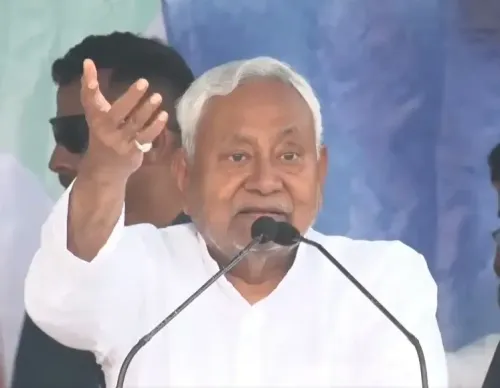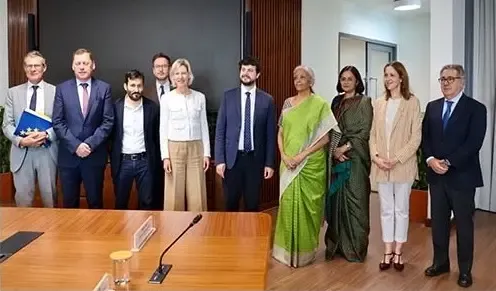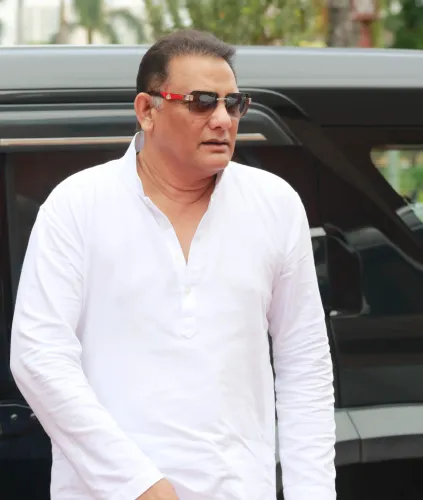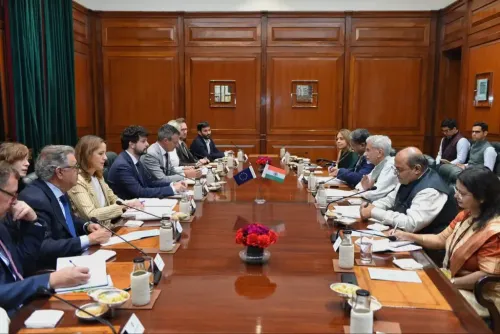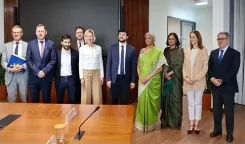Threats to Human Health from Zoonotic Infections: Insights from WHO's Former Chief Scientist
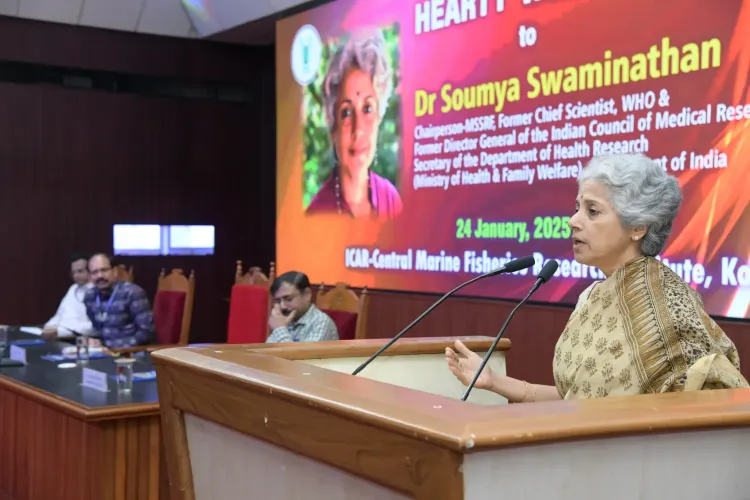
Synopsis
Key Takeaways
- Zoonotic infections are a major health threat.
- Climate change significantly impacts health.
- Integrated research is vital for outbreak prediction.
- Dietary risks affect half of India's population.
- Combat misinformation in public health.
Kochi, Jan 24 (NationPress) Addressing significant threats to human health amidst various challenges such as climate change and anti-microbial resistance, Soumya Swaminathan, the former Chief Scientist of the World Health Organisation (WHO), stated on Friday that a majority of the emerging viral threats are zoonotic infections that are transmitted from animals to humans.
She made these remarks during the launch of several initiatives as part of a comprehensive research project focusing on the assessment of water quality in Vembanad Lake and the study of waterborne infectious diseases at the ICAR-Central Marine Fisheries Research Institute (CMFRI).
Swaminathan, also the former Director General of the Indian Council of Medical Research (ICMR), highlighted the vital importance of integrated research that incorporates data from weather, climate, health, and environmental sources to forecast and avert future outbreaks.
She pointed out that most health risks today arise from environmental factors, advocating for the establishment of an Environmental Health Regulatory Agency in India. Additionally, she emphasized that dietary risks pose the most significant health threat in the nation.
"Half of Indians cannot afford a nutritionally adequate healthy diet," she noted.
There is an alarming increase in obesity and non-communicable diseases in Kerala and Tamil Nadu, compounded by ongoing issues such as malnutrition, anemia, and micronutrient deficiencies, all resulting from poor dietary choices, stated the eminent scientist.
She underscored the potential of marine resources as a crucial dietary component to enhance nutrition, saying, "We have yet to fully harness these resources to tackle pressing dietary concerns.
Swaminathan stressed the severe consequences of climate change, declaring that India is among the most susceptible nations to this threat.
"Almost the entire population is exposed to at least one climate hazard including floods, droughts, cyclones, and extreme heat. Heat poses the greatest danger to both physical and mental well-being. The most vulnerable segments of society suffer the most from these challenges," she stated.
Reflecting on the COVID-19 pandemic, she remarked that the rapid development of vaccines was an unexpected achievement made possible by extraordinary collaboration and data sharing among research entities and scientists. During her tenure at the WHO, she witnessed remarkable networking and information exchange, where scientists prioritized swift dissemination of findings over individual publications, which ultimately proved beneficial.
Discussing the issue of information overload, she highlighted how misinformation spreads rapidly across social media in the digital age, which can impede scientific advancement and public health initiatives.
"This was particularly evident during the COVID-19 pandemic when numerous individuals masqueraded as 'experts' and provided misguided advice to the public," she said.

